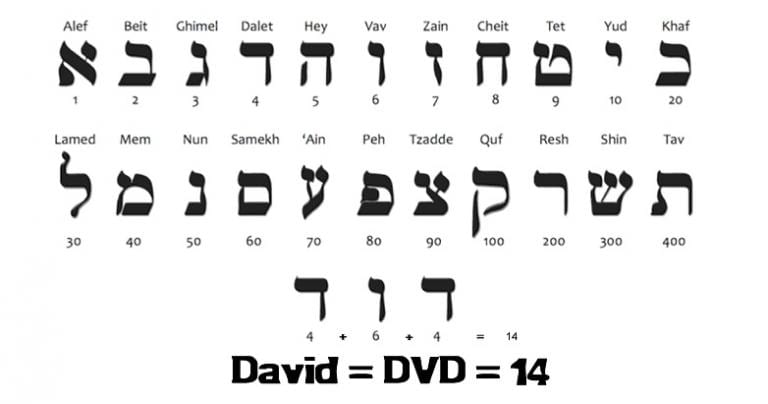Fulfillment of biblical prophecies, such as Isaiah’s promised birth of Emmanuel by the “virgin,” isn’t what most Christians think.
Fulfillment passages are littered about the first two chapters of “Matthew.” Fulfillment of what exactly? In this post we explore the “fulfillment passages” in the Matthean Infancy Narrative, oldest of all Christmas stories. Hopefully we can clear up some mistaken notions about Biblical prophecy, what fulfillment of prophecy actually means, and related issues.
We have been exploring the Infancy Narratives of Matthew 1—2 and Luke 1—2. In the previous few posts we have focused on the Matthean Infancy Narrative, which is the focus in our present cycle of our Common Lectionary begun the first week of Advent. And we have learned that Matthew 1—2 is a horror story, a very difficult and challenging tale. Unlike our Christmastime feels and Season’s Greetings, this earliest of all Christmas stories isn’t pleasant. Tasting that means understanding honor and shame, the core cultural values of all Mediterranean peoples.
Fulfillment of Confused History
With an eye for Mediterranean honor and shame, let’s dive back into the disturbing Matthean Christmas story.
Matthew 1:22-23
All this took place to fulfill what the Lord had said through the prophet: Behold, the virgin shall be with child and bear a son, and they shall name him Emmanuel,” which means “God is with us.”
Why did the anonymous author we call “Matthew” insert a passage from the Greek version of Isaiah chapter 7? Maybe we should scrutinize that section from Isaiah?
Isaiah 7:1
In the days of Ahaz, king of Judah, son of Jotham, son of Uzziah, Rezin, king of Aram, and Pekah, king of Israel, son of Remaliah, went up to attack Jerusalem, but they were not able to conquer it.
This causes headaches for American Christians. Confusing names and places confound pragmatic peoples who want fast answers. But with some help from Dr. John Pilch and the Context Group we can break it down and see its relevance.
Clearing up the Confusion
By the “days of Ahaz,” much time had passed since the reign of Solomon, son of David. His kingdom had split in two, a Northern Kingdom (“Israel”) and a Southern Kingdom made up of the leftovers from David’s monarchy (“Judah”). This situation existed from about 921—721 BCE.
Ancient Israelite wisdom maintained that all sorts of woes come from the north. Not coincidentally, because of its environs and terrain, ancient Jerusalem was only vulnerable from attacks from the north. Sometime in the eighth century BCE, the Kingdom of Assyria or Aram (think “Aramaic”) and the Northern Kingdom of Israel make an alliance and attempt to sack Jerusalem. But they fail. This is what is being referred to by Isaiah 7:1.
In order to better understand Isaiah 7, quoted from by “Matthew” in his infancy narrative, we should turn to 2 Kings 16. Here we see the same events and characters but described from a different point of view. For example, look what is said about Ahaz, king of Judah—
2 Kings 16:2-3
Ahaz was twenty years old when he became king, and he reigned sixteen years in Jerusalem. He did not do what was right in the sight of Yahweh his God, as David his father had done. He walked in the way of the kings of Israel…
Fulfillment for a Shameful King?
So what does that tell us? A couple things: first, Ahaz was a shameful king who did not do what was right by Yahweh, patron God of the Davidic kings. The second thing we are informed of is that 2 Kings—as well as the entire Deuteronomic History that 2 Kings is a part—has anti-northern sentiments and was certainly written in the south, in Judah. To the author, the Northern Kingdom is wicked and shameful as were all their kings.
But why, according to the Deuteronomists (the authors/editors of the Deuronomic History) was Ahaz so shameful and wicked?
2 Kings 16:3b
[Ahaz] even immolated his child by fire, in accordance with the abominable practices of the nations whom Yahweh had dispossessed before the Israelites
A shameful fool, King Ahaz burned his son alive as an offering to a Canaanite patron deity. To see how horrible this would be to ancient Israelites, turn back to the Matthean Infancy Narrative.
Biblical Sons are Always Blessings
Matthew 1:21
“She will bear a son and you are to name him Jesus, because he will save his people from their sins.”
Boys gave Mediterranean families tremendous social benefits. Context scholars Richard Rohrbaugh and Bruce Malina explain that sons were considered blessings from God for two reasons. The first reason is that biblical peoples believed God chose the fetal gender and that the biological parents had nothing to do with it. The second reason was that, according to all Biblical peoples, since producing offspring was the only purpose of marital sexual union, those marital unions were fruitful and which were not was determined by God alone.
Consider further why sons—gifts from God—were so very important in the Biblical world. The Mediterranean world of the Bible is a limited-good society—all goods in the world were distributed by God at creation and there is no more to come. Therefore, Rohrbaugh and Malina explain, anything used to help someone get ahead had to come from God, otherwise it is was considered morally illegitimate—stealing from someone else! Therefore to “socially progress” by any other means meant theft to biblical peoples.
So with all this understood, plus knowing about honor and shame, what does this say about the kind of a king Ahaz was? To conceive a child in this world, especially any child that would survive past six years old, was amazingly difficult. It was even more difficult to conceive a son. Given that, what kind of person would burn his son to death? King Ahaz, presented in the sacred texts, is therefore seen as a shameful idiot.
Shameful Begging
Next we read something that is given in Isaiah 7—
2 Kings 16:5
Then Rezin, king of Aram, and Pekah, son of Remaliah, king of Israel, came up to Jerusalem to attack it. Although they besieged Ahaz, they were unable to do battle.
Isaiah 7:1
In the days of Ahaz, king of Judah, son of Jotham, son of Uzziah, Rezin, king of Aram, and Pekah, king of Israel, son of Remaliah, went up to attack Jerusalem, but they were not able to conquer it.
And what does King Ahaz do next?
2 Kings 16:7
Meanwhile, Ahaz sent messengers to Tiglath-pileser, king of Assyria, with the plea: “I am your servant and your son. Come up and rescue me from the power of the king of Aram and the king of Israel, who are attacking me.”
So having been besieged by the alliance of King Rezin of Syria and King Pekah of the Northern Kingdom of Israel, King Ahaz goes to the ruler of Assyria and disgracefully begs his help. He shamefully begs the Assyrian ruler’s help, swearing to debase himself and his kingdom at Assyria’s expense.

Fulfillment of Idiotic Doom
Tiglath-pileser, king of Assyria agrees. This leads to Assyrian empire conquering the Northern Kingdom in 721 BCE? And Syria? Tiglath-pileser’s forces destroy Syria and its king.
2 Kings 16:9
The king of Assyria listened to him and moved against Damascus, captured it, deported its inhabitants to Kir, and put Rezin to death.
So now what buffer or shield is there between Judah, the land ruled over by Ahaz, and the Assyrian forces? Do you see how foolish and shameful Ahaz was? He had security from Yahweh God as the patron deity of his Davidic fathers and kingdom. And this God had granted him a son fulfilling the perpetuation of his line.
But this idiot king of Judah immolated his son as a sacrifice guaranteeing the protection of other gods, in effect insulting Yahweh. Worse still, this descendent of David begs like a slave before a foreign king greater and more terrible than both his northern enemies put together! And the text goes on to say that emulates Assyrian cult practices and its altar.
Scholar John Pilch explains that the author of Isaiah 7 presumes his audience already knows all of this background information very well. Pilch says that Isaiah, like all other biblical writings, is a high context document—why should the author repeat what he thinks his readers already know?
Fulfillment via Ambiguity
So let’s turn back to the Isaian version of the story—
Isaiah 7:3
Then Yahweh said to Isaiah: Go out to meet Ahaz, you and your son Shear-jashub…
John Pilch explains that the Hebrew name “Shear” means “remnant.”
It wasn’t until the eighth century CE that the Hebrew language gained marks indicating vowel sounds. Therefore Hebrew was originally, like every Semitic tongue, a 22-letter, all-consonant alphabet. How would people speaking Hebrew or Aramaic, prior to the 8th century CE, manage to sound out all-consonant words?
 Fellow Dying Inmate / All rights reserved
Fellow Dying Inmate / All rights reserved
Pilch explains that people sort of knew what vowel sounds were appropriate given the words being read—but he admits that things could be slippery! You might place one vowel sound into a combination of consonants and it becomes a particular word. But you could just as easily place a different vowel sound in it and a completely different word results.
Fulfillment in a Name
So consider once more Isaiah’s son’s name, Shear-jashub. Let’s focus on “jashub.” In Hebrew it’s yshwb—all consonants. Pilch shows us that if we plug into it the vowels “a” and “u,” you will get the phonetic for yashub, the word meaning to “turn around,” or “convert,” or “change,” or “return.” Seen this way, yashub can be used to mean something like the Greek metanoia. But this only happens if you plug in the right spirit—the right breath or wind—into those consonants. Therefore, read this way, with the right spirit, the name of Isaiah’s son means “a remnant will return.”
But what if we, instead of putting an “oo” wind into “shwb,” inserted an “ah” wind into it, rendering the name into yashab? Pilch explains that yashab is a different word than yashub—it is the exact same consonants, but with a different spirit (vowel-breath). Whereas yashub means “will return,” yashab means “will remain.” So what happens to all the possibilities of change and transformation and metanoia? They are all closed off with the different vowel-breath or spirit. Now the name gets associated with complacency and stagnancy and the hard heart. Therefore, when read this way, by a different spirit, the name of Isaiah’s son means “a remnant will remain.”
Readers of Isaiah 7 encounter the Hebrew name: Shr-yshwb. What does it mean? It depends on how you look at it, on the spirit that breathes it out. Different readings give vastly different insights from the prophet, and from God. Are bad times immanent? Maybe. Maybe Judah is heading into exile and slave-labor, but a remnant will return! Or maybe not. Maybe it means only some get to stay behind, the elite two-percent of the populace, while the rest will die in misery enslaved by their conquerors.
That’s how prophecy is, folks. It is ambiguous. Sorry fundamentalists, but biblical prophets are never clear and obvious. They are always ambiguous.

Fulfillment for the Here and Now
John Pilch, Bruce Malina, and the other Context Group scholars explain that there is no future tense in Hebrew. Indeed, as we understand tense, Hebrew has no tenses. Action is either completed or incomplete in Hebrew. Pilch explains that it is the messiness of incomplete action in Hebrew that Western translators betray things and make-up a “future tense” when translating the prophets. Get Nostradamus, Edgar Cayce, and other similar figures out of your mind when reading the prophets. By definition biblical prophets are God’s spokespersons for the HERE AND NOW, not the future.
Pilch and friends maintained that this information is critical in interpreting Isaiah, and especially so when considering the Matthean infancy narrative.
Following the Context Group’s lead Bible readers need to keep in mind that in Biblical Israel all talk of “elective” and “predestination” activity is always rooted in the present. In the Scriptures we are always getting a sort of “after-the-fact-predestination” perspective. That means that once something happens, one may say that God chose it to happen and predestined it to happen because it happened! Thefore any Augustinian ideas of individuals being predestined into eternal bliss or damnation should not be anachronistically retrojected into any Biblical text.
Pilch says that this information is critical in understanding Isaiah and Matthew 1—2. In Isaiah 7, the prophet Isaiah is going to present King Ahaz with God’s will for the HERE and NOW—that is a “here” and “now” back in 733 or 734 BC, when this encounter took place. Remember that the prophet is accompanied by his son with the ambiguous name. The foolish king Ahaz must grapple with the ambiguity of the prophet’s son.

Fulfillment of the Sign
Then through Isaiah, the God of Israel speaks to Ahaz—
Isaiah 7:10
Again Yahweh spoke to Ahaz: Ask for a sign from Yahweh, your God; let it be deep as Sheol, or high as the Sky Vault!
Ahaz responds,
Isaiah 7:12
“I will not ask! I will not put Yahweh to the test!”
Why does Ahaz respond that way? This isn’t a case of Mediterranean cultural-humility, as seen elsewhere in the Bible (e.g., Mark 10:17-18). Pilch explains why Ahaz will not ask Yahweh for a sign, and the reason is spelled out in what we just read from 2 Kings. Recall that Ahaz asked the Assyrian Empire for aid, and he was given it. Ahaz doesn’t need God. This is why, Pilch explains, that Ahaz will not ask a sign of God.
Fulfillment While Being Crude
Isaiah 7:13
Then [Isaiah] said: Listen, house of David! Is it not enough that you weary human beings? Must you also weary my God?
That’s actually too sanitized, too clean, and too nice. It’s more like this—
Then [Isaiah] said: “Hey Davidic heir? Is it not enough that you f— with human beings that you must also f— with my God also?”
Pilch and friends do not hesitate to affirm that the biblical prophets were quite vulgar. So too were John the Baptist and Jesus, by the way. The translators sure leave out a lot, don’t they?
Fulfillment of the Pregnant Virgin
Isaiah 7:14
Therefore the Lord himself will give you a sign—Look!—a young woman of marriageable and childbearing age is pregnant and will bear a son, and you shall call his name Emmanuel.
Look at that passage. Does it look strange? Isn’t that the “fulfillment passage” of “Matthew” with which we began this post? How should it read? Or perhaps a better question is, have you encountered this passage with different terms used?
Pilch explains that English-speaking Christians would be more familiar with Isaiah 7:14 written this way: “Behold a virgin shall conceive” where “virgin” means physical virgin (i.e., with hymen intact without any engagement in sexual acts).
But there are serious problems with that way of translating. For one thing, in the Hebrew language, two words are often translated into English as “virgin.” One of these is alma, and the other is betulah. But as far as physical integrity of the hymen goes, neither term has anything to do with that. While in our minds such physical integrity is essentially linked with virginity, not so the ancient world of the Bible.
In this passage, Isaiah uses alma.
Virgin “Untouched by Man”?
Genesis 24:16
[Rebekah] the young woman was very beautiful, a virgin [betulah], untouched by man [wa-’îš lo yəḏā‘āh]. She went down to the spring and filled her jug.
So we are informed that Rebekah was a “virgin” (betulah) in Genesis 24:16. But that only tells us that she was a girl of marriageable age—someone could be that and already be married with children! Therefore the author must provide the next phrase, “untouched by man,” in order to specify to his audience what kind of “virgin” this is.
For us and our sensibilities, it seems redundant to say a girl is a “virgin, untouched by man.” Wouldn’t just saying she was a virgin be enough to communicate all that? Not in the ancient world of the Bible. And the same thing is true for the word alma that Isaiah uses.

Immanent Fulfillment
Again, please keep in mind that the Hebrew language has no future tense. Culture gives rise to language and social systems give meanings to words. Middle Eastern culture is intensely present-oriented with most people not caring about the future.
Consider the crisis experienced by King Ahaz back in the eighth century BCE. He was terror-stricken because Jerusalem was under siege from the alliance of the Northern Kingdom of Israel and Syria. He struck his own alliance with Assyria, but he was still waiting in the results of that pact. Would King Ahaz want a prophet to tell him something that will happen 700 years ahead of his time? That would be bizarre, no? Doesn’t he need good news for his own day and its problems?
Prediction Fulfillment is Ridiculous
Pilch invites us to imagine Isaiah the prophet telling King Ahaz something like, “Hang tough, Ahaz! Let me magically look into the future like Nostradamus or Gene Roddenberry seven hundred years from now. Do you see what I see? I see a physical virgin named Mary giving birth to Jesus seven centuries from now! Alleluia! Isn’t that awesome?”
What do you think that King Ahaz, terrified by his own dire life situation in 733 BCE, would react to such a message?
Pilch answers it might be something like this: “Seven hundred years??? I don’t give a sh– what’s going to happen seven hundred years from now! I’ll be dead and gone! I care about my very real problems right here and right now!”
Pilch explains that it would therefore be rather foolish to imagine that God gave Ahaz a message about something seven hundred years ahead of time with no fulfillment, or intelligibility, until then.
First Fulfillment Back in Ahaz’s Day
What then does God tell Ahaz in Isaiah 7:13-25? The whole thing boils down to “Why did you go to Assyria, moron? Your wife is pregnant. It’s a son. Yahweh God has made sure that your dynasty will persevere. But you? You burned the son God gave you! You ruined the succession to the throne of David your ancestor.” Notice that this has nothing to do with anything seven centuries hence.
So going back to the text—
Isaiah 7:14
Therefore the Lord himself will give you a sign; the young woman, pregnant and about to bear a son, shall name him Emmanuel. Curds and honey he will eat so that he may learn to reject evil and choose good; for before the child learns to reject evil and choose good, the land of those two kings whom you dread shall be deserted.
In the biblical world when is a boy considered able to morally decide things? In other words, when will he be able to “reject evil and choose good?” According to the ancient world of the Bible it is when he reaches twelve years old. Recall that Jesus was just that age in Luke 2:41-52 when he traveled to Jerusalem with his parents.
When the Son is Twelve, What Happens?
Are you good at math? What do you get when you subtract 12 from 733? You get 721, right? Well, 721 BCE was the year when the Assyrian Empire destroys Samaria and the Northern Kingdom. This brought them right to the boarder of the Southern Kingdom of Judah—Assyria’s next meal.
Therefore the prophet Isaiah tells Ahaz that by the time his boy (Hezekiah, here named “Emmanuel”) is old enough to know the difference between good and bad, the empire he foolishly sucked up to is coming for Judah.
Isaiah 7:15
Curds and honey he will eat so that he may learn to reject evil and choose good…
Apparently the son of Ahaz, unlike his foolish father, will learn the difference between good and bad. But that part about him eating “curds and honey,” is that good news or bad news? Pilch explains that “curds and honey” makes an elegant snack in times of plenitude. But let’s assume a much worse scenario, a time of scarcity brought on by war and famine. If you are starving “curds and honey” are barely keeping you breathing. Again we are seeing the ambiguity of the prophets. How you understand “curds and honey” depends on the situation.
One takeaway here about prophecy and prophets is that they are always ambiguous. The prophets are often deliberately ambiguous. It is easy to err in understanding their prophetic message.
Fulfillment in “Matthew”
So what is going on with “Matthew” using this prophecy back in Isaiah as being fulfilled in Jesus in 1:22-23? And we can extend that to the other “fulfillment passages” of Matthew 2:5-6; 2:15; 2:17-18; and 2:23. What is going on? It certainly is very different than the realizations of predictions given long ago in Israel’s past. So let’s bring all this back to “Matthew” and come to a conclusion.
None of the Old Testament passages quoted by “Matthew” are predictions of Jesus. They all are steeped in Israel’s history and God’s dealing with them as their patron. In all of these the prophets were looking backwards, into the past, when God saved Israel, not forward into the future. Ahaz should have remembered that God always delivers God’s people!
“Matthew” is illustrating that God’s saving plan is still going strong. This anonymous author looks back decades to the shameful origins of Jesus reminding his audience that Israel endured some pretty shameful times, but God always saved them.
The Earliest Christmas Story is Difficult and Unpleasant
Matthew 1—2 is a very difficult, very challenging horror story. This earliest Christmas story has none of the comfort and joy of our Christmas traditions. There is nothing pleasant about it. Just like Hezekiah, the Matthean Jesus gets a horrible beginning to life. In this honor-shame society, everyone knows Joseph is not his father.
Pilch explains that “Matthew” helps his audience along the way. He splits his story into two. He inserts the reference to Isaiah 7 into this split. Isaiah was oblivious to the first century Israelite Jesus back in 733 BCE. He wasn’t predicting the future and he had no idea about the virginal conception of Jesus. He was talking about a situation in his day, about King Ahaz’s son being born, who, when 12 years of age, Judah’s enemies will be destroyed and Ahaz will be shamed. Then he will know that “God is with us.” “Matthew” picks this us, saying Israelites in his time will likewise realize that in Jesus “God is with us.”

Despite Jesus’ Shameful Origins, it is All God’s Plan
Pilch says that what “Matthew” is communicating is that, despite all this shameful baggage with Jesus, it’s all just part of God’s plan. This is why he inserts that part about “a holy spirit” concerning the pregnancy.
This is also why “Matthew” begins his Gospel with a fictional genealogy.
Matthew 1:17
Thus the total number of generations from Abraham to David is fourteen generations; from David to the Babylonian exile, fourteen generations; from the Babylonian exile to the Messiah, fourteen generations.
This should be obvious with that line that the genealogy is artificial and arbitrary, says Pilch. Fourteen, and fourteen, and fourteen? Real life doesn’t happen like that. And that is alright because biblical genealogies are not intended to be factual, biographical accounts. We’ve gone over all that here.
More to come about Holy Family and the mysterious magi, soon…




